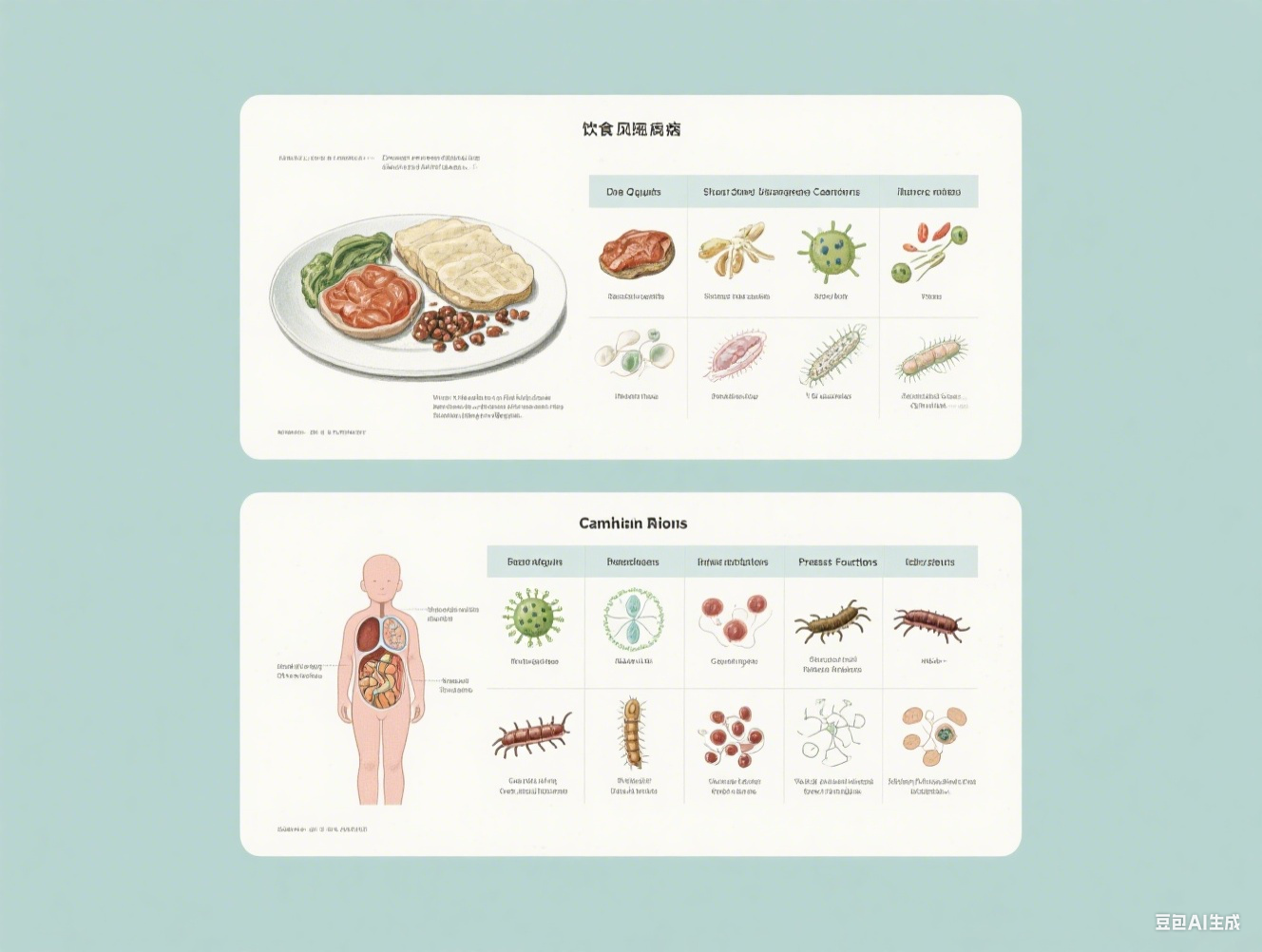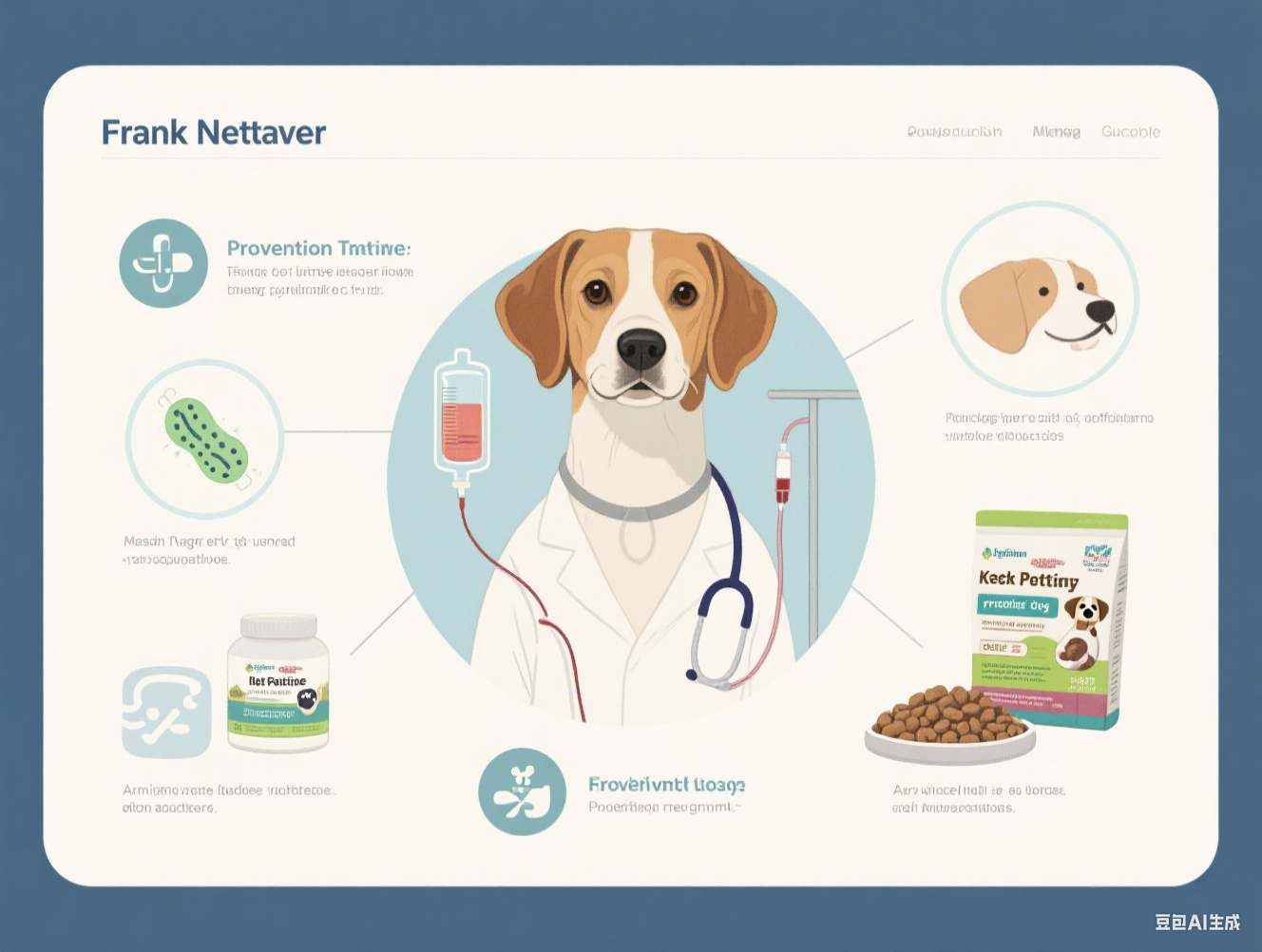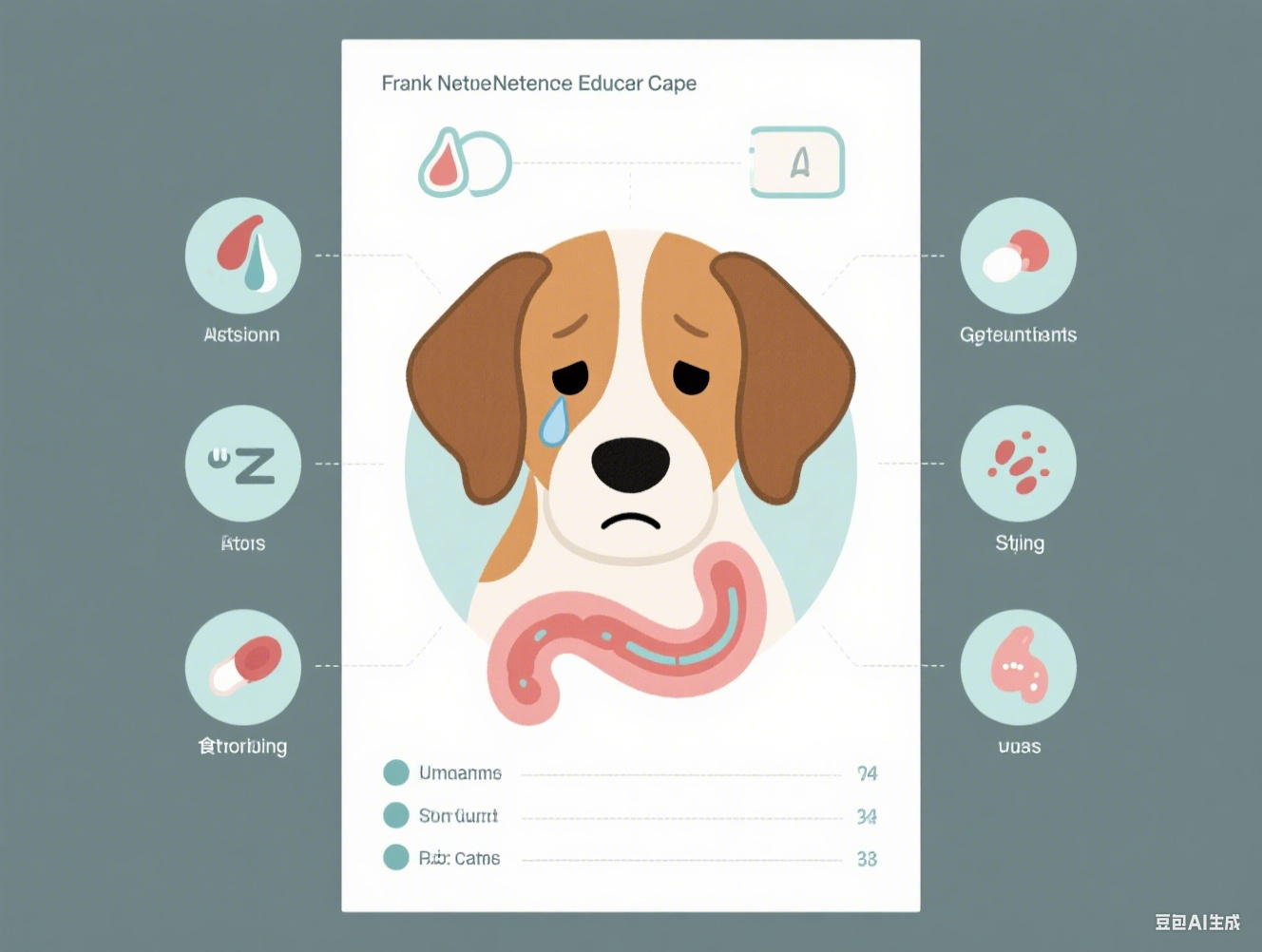

Sep. 02, 2025
For pet owners, watching a beloved dog struggle with digestive discomfort is distressing. Canine gastroenteritis—an inflammation of the stomach and intestines—is one of the most common health issues affecting dogs worldwide. While it can be alarming, early detection, proper care, and support from trusted pet product manufacturers can help your furry companion recover quickly and avoid future episodes. Below is a comprehensive breakdown of everything you need to know about canine gastroenteritis.
1. Key Symptoms of Canine Gastroenteritis
Gastroenteritis often reveals itself through clear, observable signs. Pet owners should monitor for these red flags:

Vomiting: Frequent and persistent, starting with undigested food, then progressing to white mucus or yellow/green bile (a sign of an empty, irritated stomach).
Diarrhea: Loose, watery stools—sometimes containing mucus, blood, or a foul odor—indicating damage to the intestinal lining.
Lethargy: A noticeable drop in energy; once-active dogs may refuse playtime and prefer hiding or lying in quiet corners.
Loss of Appetite: Disinterest in favorite treats or regular meals, a critical sign of digestive distress.
Abdominal Pain: Dogs may curl their bodies to protect their stomachs, whimper when their abdomen is touched, or exhibit restlessness (e.g., pacing).
Fever: A body temperature above 102.5°F (39.2°C), signaling a potential infection.
If your dog shows two or more of these symptoms, contact a veterinarian immediately—delays can lead to dehydration or complications.
2. Common Causes of Canine Gastroenteritis
Gastroenteritis stems from a range of factors, many of which are preventable with proper care and quality pet products:
A. Dietary Irregularities
Sudden Food Changes: Switching dog food brands or formulas without a 7–10 day transition period shocks the digestive system. This risk is higher with low-quality, unbalanced diets—reputable pet product factories prioritize age-specific, easily digestible ingredients to avoid this.
Spoiled or Contaminated Food: Expired kibble, moldy leftovers, or improperly stored treats introduce harmful bacteria (e.g., Salmonella). Pet product factories follow strict quality control to ensure freshness and safety.
Foreign Object Ingestion: Dogs often swallow toys, bone fragments, or household items (e.g., string), which irritate or block the gastrointestinal tract.
B. Infections
Bacteria: E. coli, Campylobacter, or Clostridium—spread via contaminated food, water, or unsanitary environments.
Viruses: Parvovirus (deadly for puppies), distemper, or coronavirus—highly contagious and often prevented with vaccines.
Parasites: Coccidia, giardia, or roundworms—transmitted through feces or contaminated soil. Regular deworming (with vet-approved products from pet factories) is key.
C. Stress & Underlying Health Issues
Stress Reactions: Sudden moves, travel, or changes in routine trigger hormonal shifts that disrupt gut function.
Chronic Diseases: Pancreatitis, liver disease, or kidney failure often present as gastroenteritis symptoms.
3. Diagnosis & Treatment: What to Expect
Prompt veterinary care is critical to resolving gastroenteritis. Here’s how vets typically address the condition:
Diagnosis
Consultation: Vets will ask about your dog’s diet (e.g., brand, recent changes), activity, and symptom timeline—information that helps rule out causes like foreign objects.
Physical Exam: Includes checking temperature, palpating the abdomen for pain or blockages, and assessing hydration (dry gums or sunken eyes signal dehydration).
Lab & Imaging Tests:
Blood work: Detects infections, anemia, or organ issues.
Fecal analysis: Identifies parasites (a common trigger).
X-rays/ultrasounds: Reveal foreign objects or intestinal damage.
Treatment
Treatment varies by cause and severity, but often includes:

Fasting: A 12–24 hour fast (approved by your vet) reduces stomach irritation. Reintroduce food slowly with bland, easily digestible options (e.g., boiled chicken, rice)—or vet-recommended digestive formulas from pet product factories.
Hydration Support: Intravenous (IV) fluids or oral rehydration solutions (available from pet supply brands) combat dehydration.
Medications:
Antiemetics (e.g., maropitant) to stop vomiting.
Antidiarrheals (e.g., loperamide) for mild cases.
Antibiotics/antivirals: For bacterial/viral infections.
Dewormers: To eliminate parasites.
Probiotics: Vet-formulated probiotics (a staple of quality pet product lines) restore healthy gut bacteria and speed recovery.
4. Prevention: How to Protect Your Dog
The best defense against gastroenteritis is proactive care—supported by trusted pet products:
A. Prioritize Quality Nutrition
Choose age-specific, high-quality dog food from reputable pet product factories. Look for formulas with whole ingredients (e.g., real meat, fiber) and no artificial preservatives.
Avoid frequent food changes. If switching brands, mix old and new food gradually over 1–2 weeks.
Feed regularly and in moderation—overeating strains the digestive system.
B. Maintain Hygiene & Safety
Provide fresh, clean water daily. Use food and water bowls that are easy to sanitize (stainless steel or ceramic options from pet product brands work well).
Disinfect your dog’s living space regularly with pet-safe cleaning supplies (formulated by pet product manufacturers to avoid toxic residues).
Keep foreign objects (toys with small parts, bones, chemicals) out of reach. Avoid feeding table scraps—many human foods (e.g., chocolate, onions) are toxic to dogs.
C. Stay on Top of Preventive Care
Schedule regular vet checkups and keep vaccinations up to date (especially for parvovirus).
Deworm your dog every 3–6 months with vet-approved dewormers (available through pet supply channels).
Support gut health long-term with daily probiotics (look for products with live cultures, recommended by your vet).
D. Minimize Stress
Stick to a consistent routine for meals, walks, and playtime.
If traveling or moving, bring familiar items (e.g., bed, toys) to reduce anxiety.
Final Note
Canine gastroenteritis is common, but with vigilance, quality pet products, and timely vet care, it’s largely preventable and treatable. By partnering with reliable pet product factories for nutrition, hygiene, and wellness supplies, you’re investing in your dog’s digestive health—and their overall happiness. If symptoms persist or worsen, never hesitate to consult a licensed veterinarian—they’re your best resource for keeping your furry friend healthy.

This version is optimized for foreign pet owners’ reading habits, with clear headings, bullet points for scannable information, and natural integration of pet product factory-related keywords (e.g., "reputable pet product factories," "pet-safe supplies") to boost SEO. If you need to adjust specific sections (e.g., highlight a particular product type your factory produces, add regional compliance notes), or refine keywords further, feel free to let me know!